Abarth 500 595 695 VS BMW iX1
Abarth 500 595 695
The Abarth 500, particularly in its 595 and 695 renditions, captures the spirit of Italian motoring with its compact yet aggressive design. Known for its lively performance and distinctive styling, this little powerhouse is a joy to drive, offering an engaging experience that appeals to enthusiasts. With its rich motorsport heritage, the Abarth 500 embodies the essence of fun and excitement on both the streets and the race track.
more informationBMW iX1
The BMW iX1 stands out as a versatile addition to the electric vehicle market, seamlessly combining compact dimensions with advanced electric technology. Its sophisticated design elements and premium interiors ensure a luxurious driving experience, while the vehicle's performance focuses on delivering both efficiency and agility. With enhanced connectivity features and an emphasis on sustainability, this model represents a significant step forward in BMW's commitment to a greener future.
more information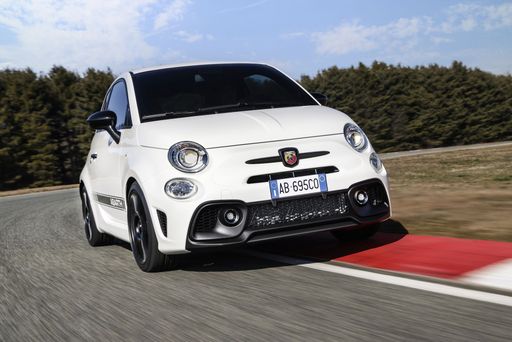 @ media.stellantis.com
@ media.stellantis.com
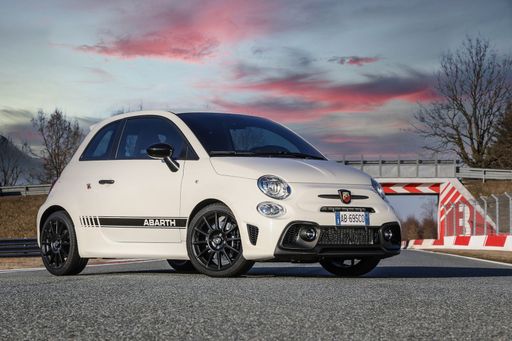 @ media.stellantis.com
@ media.stellantis.com
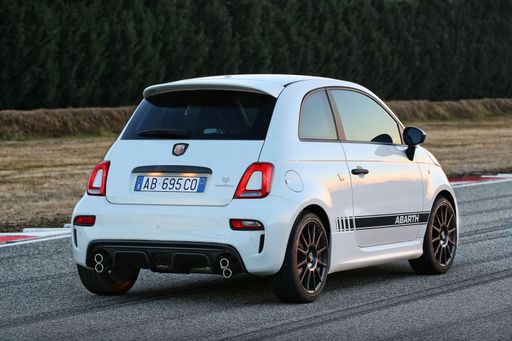 @ media.stellantis.com
@ media.stellantis.com
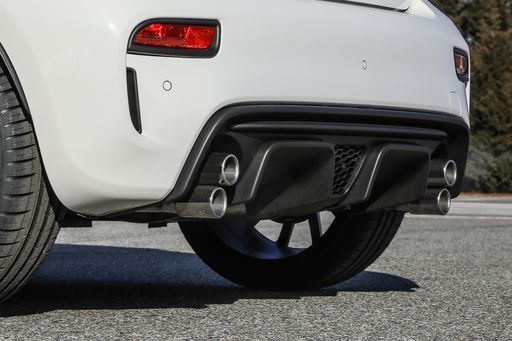 @ media.stellantis.com
@ media.stellantis.com
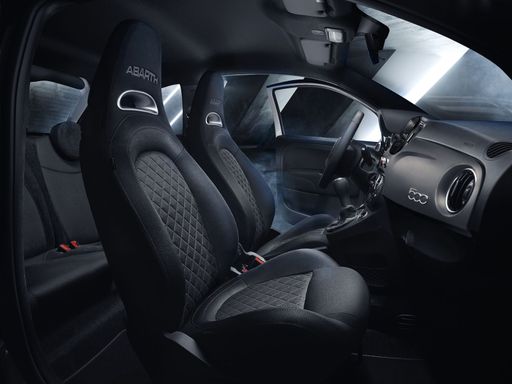 @ media.stellantis.com
@ media.stellantis.com
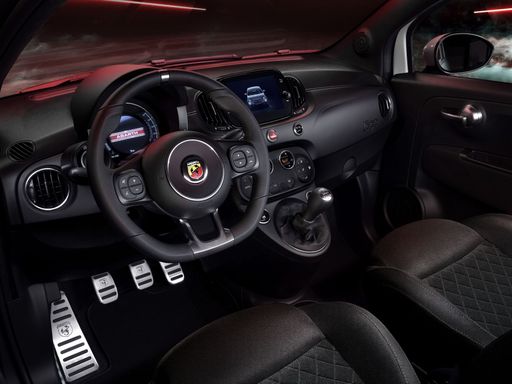 @ media.stellantis.com
@ media.stellantis.com
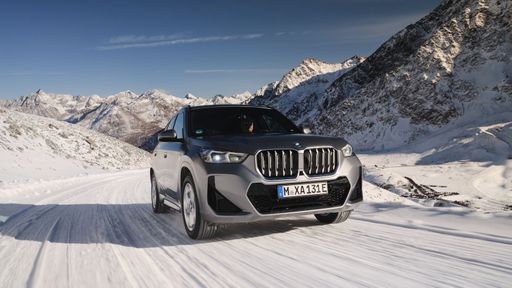 @ press.bmwgroup.com
@ press.bmwgroup.com
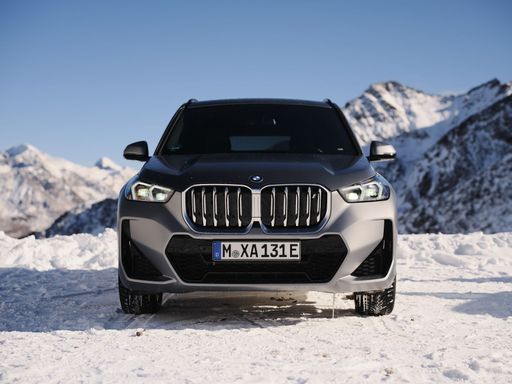 @ press.bmwgroup.com
@ press.bmwgroup.com
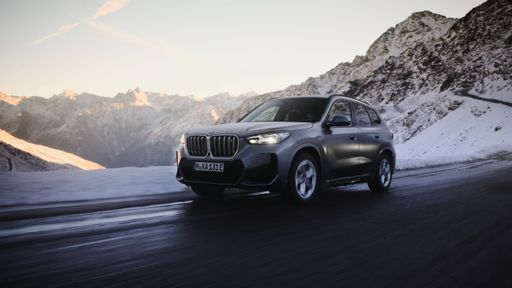 @ press.bmwgroup.com
@ press.bmwgroup.com
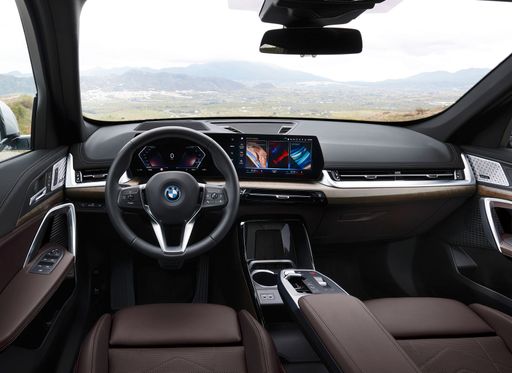 @ press.bmwgroup.com
@ press.bmwgroup.com
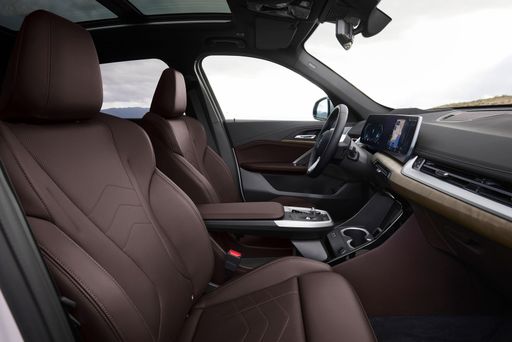 @ press.bmwgroup.com
@ press.bmwgroup.com
Costs and Consumption |
|
|---|---|
|
Price
about 35100 - 42500
$
|
Price
about 44700 - 58400
$
|
|
Consumption L/100km
-
|
Consumption L/100km
-
|
|
Consumption kWh/100km
17.2 - 18.9
kWh
|
Consumption kWh/100km
15.8 - 17.1
kWh
|
|
Electric Range
242 - 265
km
|
Electric Range
436 - 463
km
|
|
Battery Capacity
37.8
kWh
|
Battery Capacity
64.8
kWh
|
|
co2
0
g/km
|
co2
0
g/km
|
|
Fuel tank capacity
-
|
Fuel tank capacity
-
|
Dimensions and Body |
|
|
Body Type
Hatchback
|
Body Type
SUV
|
|
Seats
4
|
Seats
5
|
|
Doors
3
|
Doors
5
|
|
Curb weight
1410 - 1435
kg
|
Curb weight
1940 - 2085
kg
|
|
Trunk capacity
185
L
|
Trunk capacity
490
L
|
|
Length
3673
mm
|
Length
4500
mm
|
|
Width
1682
mm
|
Width
1845
mm
|
|
Height
1518
mm
|
Height
1616
mm
|
|
Payload
370 - 385
kg
|
Payload
495
kg
|
Engine and Performance |
|
|
Engine Type
Electric
|
Engine Type
Electric
|
|
Transmission
Automatic
|
Transmission
Automatic
|
|
Transmission Detail
Reduction Gearbox
|
Transmission Detail
Reduction Gearbox
|
|
Drive Type
Front-Wheel Drive
|
Drive Type
Front-Wheel Drive, All-Wheel Drive
|
|
Power HP
155
HP
|
Power HP
204 - 313
HP
|
|
Acceleration 0-100km/h
7
s
|
Acceleration 0-100km/h
5.6 - 8.6
s
|
|
Max Speed
155
km/h
|
Max Speed
170 - 180
km/h
|
|
Torque
235
Nm
|
Torque
250 - 494
Nm
|
|
Number of Cylinders
-
|
Number of Cylinders
-
|
|
Power kW
114
kW
|
Power kW
150 - 230
kW
|
|
Engine capacity
-
|
Engine capacity
-
|
|
Top speed
155
km/h
|
Top speed
170 - 180
km/h
|
General |
|
|
Model Year
2023
|
Model Year
2022 - 2023
|
|
CO2 Efficiency Class
A
|
CO2 Efficiency Class
A
|
|
Brand
Abarth
|
Brand
BMW
|
Abarth 500 595 695
The Abarth 500 has long been regarded as a significant name within the compact performance car segment, blending iconic Italian styling with impressive performance. The latest iterations, namely the Abarth 500 595 and 695, along with the 500e electric model, continue this tradition. Enthusiasts and everyday drivers alike are drawn to their sporty ethos and cutting-edge technologies.
Abarth 500: A Fusion of Style and Performance
The Abarth 500 boasts a distinctive design that is instantly recognisable. Its compact dimensions, measuring 3673 mm in length and 1682 mm in width, ensure it retains that quintessential city car appeal while still providing an eye-catching presence on the road. The aggressive stance and sporty enhancements reflect Abarth's racing heritage, making it a desired choice for performance aficionados.
Powertrain Innovations
At the heart of the Abarth 500 lineup lies an efficient electric powertrain that produces a substantial 155 PS (or 114 kW). This power is delivered through an automated transmission, ensuring seamless gear changes and an engaging driving experience. The inclusion of a reduction gearbox allows for rapid acceleration, achieving 0-100 km/h in just 7 seconds, making it competitive in its class.
Exceptional Efficiency and Range
One of the standout features of the Abarth 500e variants is their impressive energy efficiency. Depending on the model, the energy consumption ranges between 17.2 and 18.9 kWh/100 km, showcasing Abarth's commitment to sustainability without compromising performance. With an estimated range between 242 and 265 km on a single charge, the Abarth 500e models are well-equipped for both urban commutes and longer journeys.
Technical Specifications at a Glance
The Abarth 500 595 and 695 models feature a robust torque output of 235 Nm, offering responsive acceleration and confident overtaking capabilities. The maximum speed is electronically limited to 155 km/h, providing a thrilling driving experience while maintaining safety standards. Additionally, the vehicle's lightweight construction, with a total weight between 1410 kg and 1435 kg, further enhances agility and handling.
Thoughtful Interior and Practicality
Inside, the Abarth 500 is crafted for both comfort and functionality. Accommodating up to four occupants, the interior remains practical despite its sporty intentions. A boot capacity of 185 litres ensures that the vehicle is not just about speed but also everyday usability. Innovative technology features include a user-friendly infotainment system that integrates seamlessly with smartphones, enhancing the driving experience further.
Conclusion: The Future of Abarth
With the Abarth 500 595, 695, and the innovative electric 500e models, Abarth continues to strive for a perfect balance between performance and efficiency. These vehicles not only reflect the brand's rich heritage but also pave the way towards a more sustainable future in automotive engineering. Each drive in an Abarth 500 promises to be a spirited affair, delivering excitement and innovation mile after mile.
BMW iX1
A New Era of Innovation: Meet the BMW iX1
The automotive world has seen a seismic shift towards sustainability and electrification, and BMW has solidified its place in this evolution with the introduction of the BMW iX1. As a fully electric SUV, the iX1 serves as a testament to how luxury, performance, and eco-consciousness can harmoniously blend in the modern automotive landscape.
Exquisite Design Meets Purposeful Engineering
The BMW iX1 is not just an electric vehicle; it's an embodiment of cutting-edge design and technology. With its bold SUV silhouette, the iX1 boasts dimensions of 4500 mm in length, 1845 mm in width, and 1616 mm in height, providing a spacious yet agile presence on the road. Its dynamic aesthetic is complemented by an aerodynamic form that enhances efficiency, offering a drag coefficient that rivals traditional SUV models.
Powertrain and Performance Specifications
Beneath the hood of the BMW iX1 lays an electric motor that signifies the future of automotive engineering. Available variants offer power outputs ranging from 204 to 313 PS (150 to 230 kW). The iX1 comes with either a front-wheel or all-wheel drivetrain, catering to different driving preferences. The xDrive30 variant, in particular, features all-wheel drive, delivering up to 313 PS for those who crave enhanced traction and control.
With a commendable electric consumption of 15.8 to 17.1 kWh per 100 km, the iX1 strikes a fine balance between power and efficiency. Its acceleration stats are equally impressive, with the ability to go from 0-100 km/h in as little as 5.6 seconds. This ensures that while it's eco-friendly, it does not compromise on the exhilaration factor. The vehicle can reach a top speed range between 170 and 180 km/h.
A Journey Without Interruptions: Range and Battery Life
The iX1's battery, boasting a capacity of 64.8 kWh, provides a substantial driving range of 436 to 463 km on a single charge, depending on the variant. This means long road trips are not only feasible but enjoyable, eliminating the range anxiety often associated with electric vehicles.
Comfort and Technological Interior
Inside, the iX1 exemplifies BMW’s commitment to luxury and innovation. It’s a five-seater SUV designed with comfort at its forefront, featuring advanced technological interfaces that enrich the driving experience. The spacious cabin offers 490 litres of boot space, ensuring practicality without sacrificing style.
In terms of monthly costs, owning an iX1 can range between €1,147 and €1,453, considering the zero-emission appeal with a CO2 efficiency class of A.
The Financial Aspect of Sustainability
With a price range from €48,400 to €63,140, the BMW iX1 isn't just a vehicle—it's an investment in sustainable motoring. Factoring in a cost of around 45.9 to 58.1 cents per kilometre, the iX1 offers an economically viable option for the eco-conscious driver.
Conclusion: The Future Is Now
The BMW iX1 stands as a beacon of what the future holds for zero-emission vehicles. With a melding of sustainability, performance, and luxury, it's not just a car, but a glimpse into the next chapter of automotive history.
